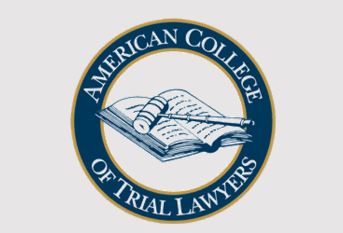Conducting internal privileged investigations is a complex, nuanced, and rarely mastered art. Many investigation- related questions arise when a company becomes aware that internal conduct could give rise to civil or criminal liability. Should the company investigate? Who should oversee the investigation and conduct it? What additional issues must counsel consider if the matter involves cross-border aspects? And what about government cooperation, Upjohn warnings, joint-defense agreements, and privilege waiver?
related questions arise when a company becomes aware that internal conduct could give rise to civil or criminal liability. Should the company investigate? Who should oversee the investigation and conduct it? What additional issues must counsel consider if the matter involves cross-border aspects? And what about government cooperation, Upjohn warnings, joint-defense agreements, and privilege waiver?
The Federal Criminal Procedure Committee of the American College of Trial Lawyers recently published a 2020 update to its Recommended Practices for Companies and Their Counsel in Conducting Internal Investigations. This paper is a must-read for General Counsel, in-house lawyers, and outside counsel who regularly conduct—or believe they will conduct—corporate internal investigations.
Here are few highlights. Regarding the role of the company’s Board or Management in the investigation, the ACTL says this—
It is important that management, usually including the general counsel’s office, not be, and not be perceived to be, in charge of the internal investigation.
In fact, the authors caution that the involvement of “Board members and officers whose conduct is at issue may jeopardize the company’s ability to preserve its attorney-client privilege.” Instead, the Board should appoint a committee of independent Board members to oversee the investigation, and this committee should retain counsel to conduct the investigation.
Regarding reporting procedures and documentation protocols, the ACTL appropriately recommends that the company and its investigating counsel “should agree on reporting procedures and protocols for documenting the investigation, including designating communications with the legends ATTORNEY-CLIENT PRIVILEGED or ATTORNEY WORK PRODUCT.” At the same time, the group aptly cautions that counsel and her client “should anticipate that all documents created, facts uncovered, and witness statements may be disclosed to prosecutors or regulators and also may be discoverable by a private plaintiff.”
The paper addresses Upjohn warnings, including the debate about whether interviewing counsel should provide the employee with a written copy of the warnings. It walks through the mechanics of a litigation hold and discusses whether the company and its officers should enter into a joint-defense or common-interest agreement to avoid privilege waiver. On these agreements, the paper raises the issue whether the agreement should contain a carve-out that permits the company to disclose certain privileged information to an investigating government agency.
The paper raises awareness of the privilege minefields that arise in cross-border investigations. And it concludes with a long yet succinct list of beginning-to-end recommendations for conducting internal investigations. In short, this is a comprehensive, well-written publication on an important topic fraught with peril at every corner. Download it and read it—you’ll be glad you did.

2 Comments
Comments are closed.